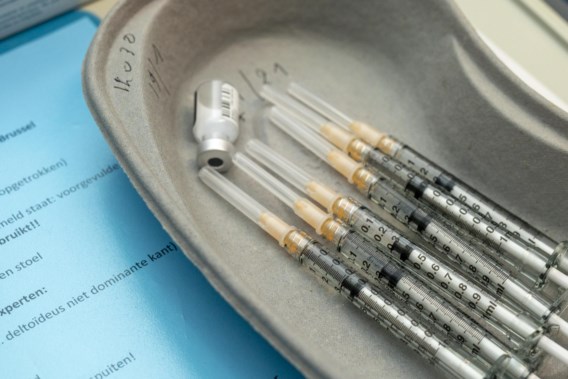Belgium's different health ministers have decided that people with a weakened immune system will be able to receive a fourth dose of a coronavirus vaccine, announced Walloon Health Minister Christie Morreale.
Last week, the Superior Health Council stated that a fourth shot was recommended for immunocompromised people, including those with congenital immune disorders, people who receive chronic kidney dialysis, certain HIV patients, people with blood cancer or other malignant tumours or patients who have undergone a stem cell or organ transplant.
"The Superior Health Council recommends vaccinating immunocompromised people again, as they are very fragile and at risk from Covid-19. The Ministers of Health have just given their green light, with implementation to follow," Morreale tweeted on Monday.
Le Conseil Supérieur de la #Santé recommande de booster à nouveau les personnes immunodéprimées, très fragiles et à risque face au #COVID19. Les Ministres de la Santé viennent de donner leur feu vert, avec implémentation prochaine.
— Christie Morreale (@christiemorreal) January 24, 2022
The fourth dose for this specific group is considered as a booster, as the previous three shots were seen as the basic vaccination schedule for them, Gudrun Briat of the Vaccination Taskforce told The Brussels Times last week.
The people who are part of this group already received a third dose in September, as they need three doses of the vaccine to have the same level of protection as the general population receives after just two doses, “because their immune systems do not function as well.”
"So actually, this decision means they will be on schedule with the general population, who are now also getting a booster," Briat said. The additional round of vaccinations is expected to start very soon, as everything is ready due to the ongoing "regular" booster campaign for the general population.
As of Monday 24 January, 67% of the adult population (54% of the entire population) in Belgium already received a booster vaccine dose, according to the latest figures by the Sciensano national health institute.

